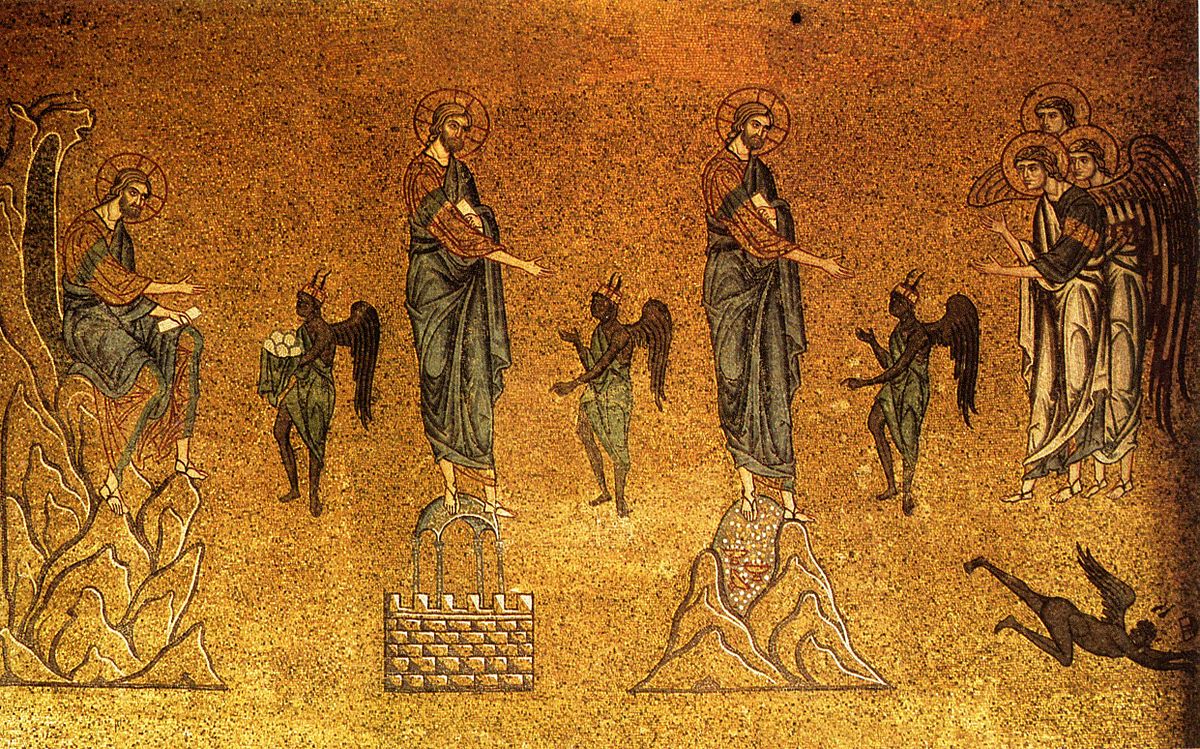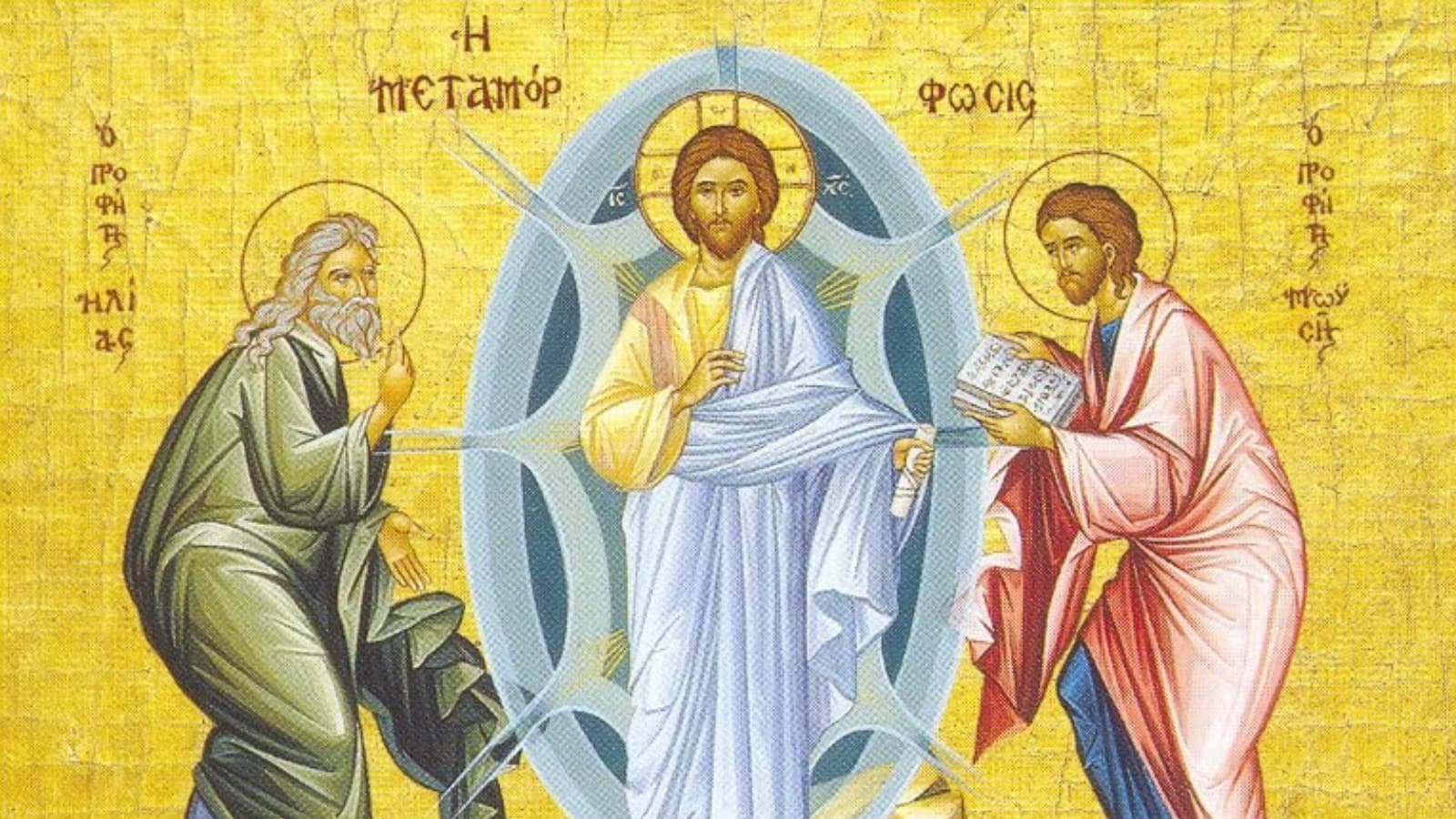+ 2nd Sunday in Lent – March 1st, 2026 +
Series A: Genesis 12:1-9; Romans 4:1-8, 13-17; John 3:1-17
Beautiful Savior Lutheran Church
Milton, WA
:max_bytes(150000):strip_icc()/NicodemusandJesus-91728433-5c59b2a4c9e77c0001a41b8a.jpg)
In the Name of the Father and of the + Son and of the Holy Spirit. Amen.
When you or I make something we always need the right parts, ingredients, or materials before we begin. Cedar for woodworking. Yarn for knitting. Watercolors for painting. Lego bricks for building. And so on.
Not so for God. When God creates, he creates ex nihilo, out of nothing.
When God reveals his saving love in sending Jesus he doesn’t ask for an assist. He doesn’t need our helping hands. Our Lord has no copilot. No assistant to the regional manager.
When our Lord Jesus comes to our rescue everything he says and does for you – indeed, your entire life – rests on his grace.
And when Paul writes of the righteousness that comes by faith. And when Jesus tells Nicodemus he must be born from above by water and the Spirit. This is nothing new. It’s as old as father Abraham. As old as creation. In fact, it’s as old as before the foundations of the earth: Whatever God does, he does it by grace. Jesus, and Paul following his master, are doing nothing new.
From the dawn of creation with the first “let there be light” to the archangel’s trumpet on the Last Day, this is how God works: everything rests on his grace for you in Jesus.
God calls creation – which begins in darkness and void and nothingness - is into existence by the gracious, powerful Word of God. All of creation (even now and till the Last Day) rests on grace.
God calls Abram – a gentile, pagan, childless father – to a new country, the bearer of the promised Seed, the Offspring, the One through whom God would bless all nations. And for Abram it all rests on grace.
God calls the apostle Paul, formerly known as Saul the persecutor, to be a preacher of his Gospel. The Good news that to the one who does not work but believes in Him who justifies the wicked, his faith is reckoned as righteousness. For Paul all of life, body and soul. Rests on grace.
God calls Nicodemus the pharisee, who comes to Jesus by night, to a new birth and new life by water and his Spirit. Light and life in the Son who is raised up on the cross for Nicodemus and for us all. So that his faith, like ours, rests on grace.
And part of us – the new Adam and the new Eve, the baptized child and saint of God that we are – rejoices in this abundantly gracious giving God. Our new man delights in the good news that all we are and have. All of God’s promises in this creation and the new creation, they all, we all, rest in the grace of God in Christ.
But there’s another part of us, at least in this life, the old Adam, the old Eve, the sinful nature, that begrudges God’s graciousness. More than that. Finds it offensive. Scandalous. Too good to be true. And downright terrifying. Why?
Because when God does all the work, all the saving, all the giving his gifts of repentance and forgiveness, there’s nothing in our hands to bring. Nothing we can pat ourselves on the back for. Nothing we can take credit for or contribute. Oh, sure we contribute plenty. Plenty of sin. A plethora of trespasses. A steaming, dung-heap of filth and faithlessness…but that’s it. Everything depends on God’s grace. It’s out of our control. And this is what our sinful flesh finds so maddening.
Because if there’s one thing our sinful flesh loves more than sinning (or being prideful that we aren’t all that bad of sinners); if there’s one thing we love more than loving ourselves; it’s living in the delusion that we are in control. Independent. Self-reliant. Captains of our own ships. Masters of our own destinies. True north on our own compasses.
And this, when we’re honest with ourselves. Honest with what God says to us in his holy word, this is terrifying. Humbling. Brings us to our knees. Falling on our faces.
This is why we have a season of Lent. A time where our Lord brings us into the wilderness for testing. Where our Lord calls us to a new land and new promises. To journey with Abraham, out of nothingness into his promise. To travel with Paul on the Damascus road and go from breathing threats and murder, to preaching grace and mercy. To sit with Nicodemus in the dark and hear the wildness of God’s grace wash over us.
“Truly, truly, I say to you, unless one is born from above he cannot see the kingdom of God.”
And that’s the way out of the labyrinth. That’s the way our Lord called Abram to travel. The road Jesus sent Paul journeying down. The way he invited Nicodemus to walk upon. To take the paths of the dead. To walk into the grave with Jesus. To see that we are dead in trespasses and sin. Unalive and in need of a new birth. That we are dead men walking from the moment we’re conceived. That we’re wicked and ungodly as Paul says we are. And that we’re right there with Nicodemus in the dark, confused and struggling to believe that which sounds unbelievable.
Is there a way out? Where’s our rescue? What hope do we have? How can these things be, we join Nicodemus in asking?
And Jesus’ reply is simple. There are not many ways, but one way. And one way only. One door. One narrow path. Into death. Through the grave. And made alive again in the resurrection.
St. Paul says it this way: For the promise to Abraham and his offspring that he would be heir of the world did not come through the law but through the righteousness of faith. 16 That is why it depends on faith, in order that the promise may rest on grace and be guaranteed to all his offspring
For Paul. For you. For me. It all rests on grace. And this grace is yours in Christ Jesus who gives life to the dead and calls into existence the things that do not exist.
Our Lord Jesus says it this way, so that you never forget: your life, faith, body and soul – all rests on grace. For as Moses lifted up the serpent in the wilderness, so must the Son of Man be lifted up, that whoever believes in him may have eternal life.
“For God loved the world in this way, that he gave his only Son, that whoever believes in him should not perish but have eternal life. For God did not send his Son into the world to condemn the world, but in order that the world might be saved through him.
In the Name of the Father and of the + Son and of the Holy Spirit. Amen.



